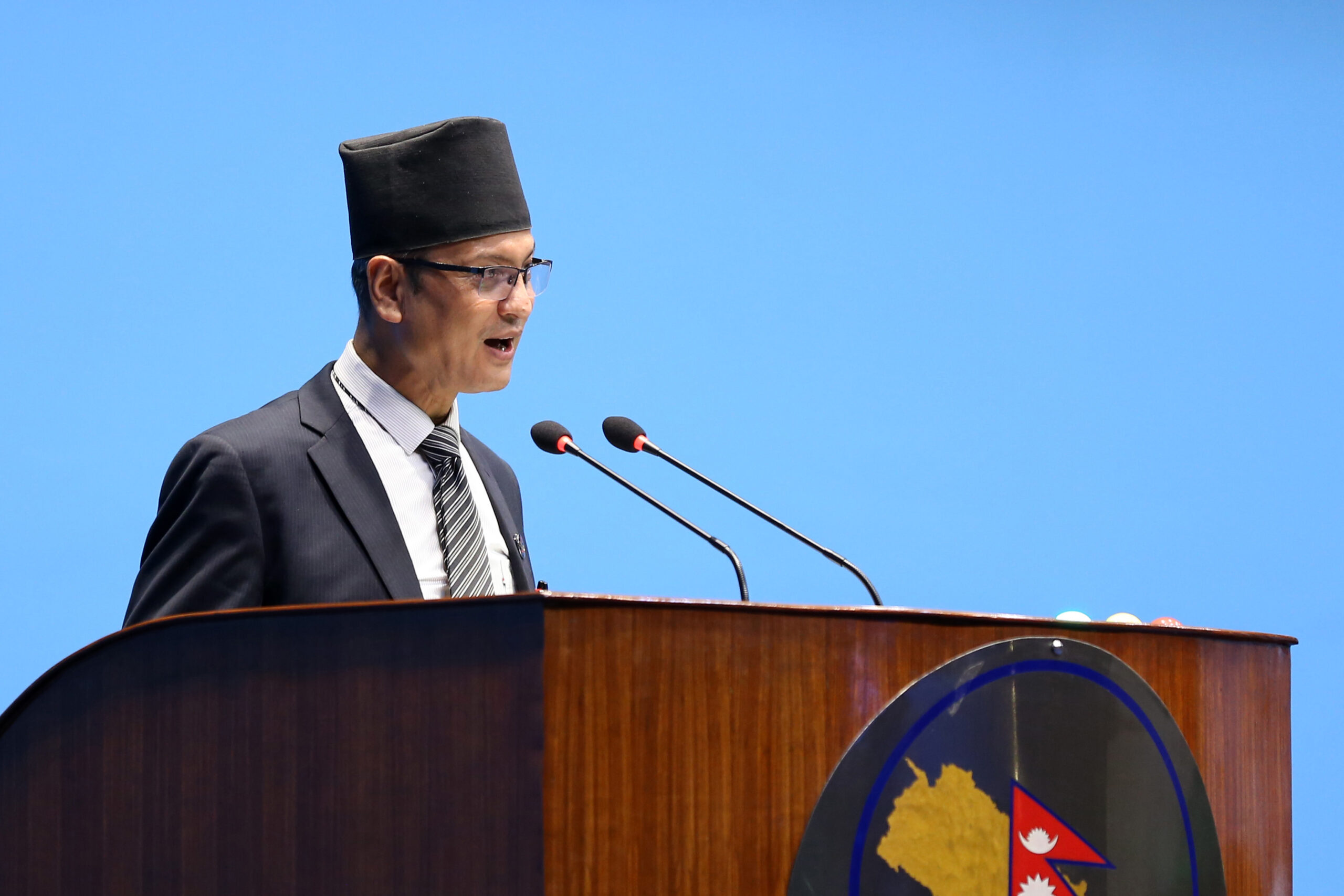KATHMANDU: Minister for Law, Justice and Parliamentary Affairs Govinda Prasad Sharma Koirala has argued that the transitional justice (TJ) itself is required as the criminal justice system doesn’t work during conflict period in any country.
Minister Koirala said this while replying to the questions raised by lawmaker Prem Suwal who proposed a protest note on the Bill on Enforced Disappeared Persons, Truth and Reconciliation Commission (Third Amendment), 2079 BS in the meeting of the House of Representatives toady.
The Minister for Law and Justice explained this kind of practice is prevalent throughout the world and not only in Nepal, saying the definition of transitional justice and criminal justice is different.
“The criminal justice system itself addresses the general crimes while the transitional justice has to be taken ahead on the basis of the four pillars, namely truth, justice, reparation and institutional reform,” he viewed.
He informed the House that the Truth and Reconciliation Commission, after finding out the causes of the conflict and identifying incidents of violation, takes some cases of serious nature to trial and forges conciliation in the rest of the cases, which is the worldwide practice.
“This is not an instance in which the government or the Law Minister has missed the point. Punishment is also possible in grave crimes on the basis of the topics raised in this very parliament, the discussions following the peace agreement and the aforementioned four pillars. The rest of the topics should be finalized based on the reparation and reconciliation.”
Regarding lawmaker Suwal’s question that the report of the discussions held in all the seven provinces has not been made public, Minister Koirala said the report has been made public by organizing a program at the center. He informed that the bill has been brought on the grounds of the same, adding some topics can be discussed while holding clause-by-clause deliberations in parliament.
The Law, Justice and Parliamentary Affairs Minister shared the experience that the TJ doesn’t conclude unless the laws are amended.
Minister Koirala had tabled the bill in the House taking permission from Speaker Agni Prasad Sapkota.
Presenting a note of dissent on the bill in the House before this, lawmaker Suwal had questioned the rationale of the bill, saying the bill has been brought in such manner that it absolved the perpetrator instead of providing justice to the victims despite the Law Minister’s assurances.
In his opinion, the TJ bill alone would not get the full shape. Suwal contended that the bill fails to address the topics of grave violation of human rights and that there could not at all be reconciliation in such instances.
“What are the goals of the armed conflict, for what cause was it waged, these should be written in the Schedule. Who are its (the armed conflict) major figures, what was the extent of losses and casualties, these things should also be mentioned in the bill,” lawmaker Suwal insisted.
The protest note presented by lawmaker Suwal was rejected by the House with a majority.
The today’s meeting of the HoR was adjourned. It will next meet at 11 am on August 29. (RSS)









Comment